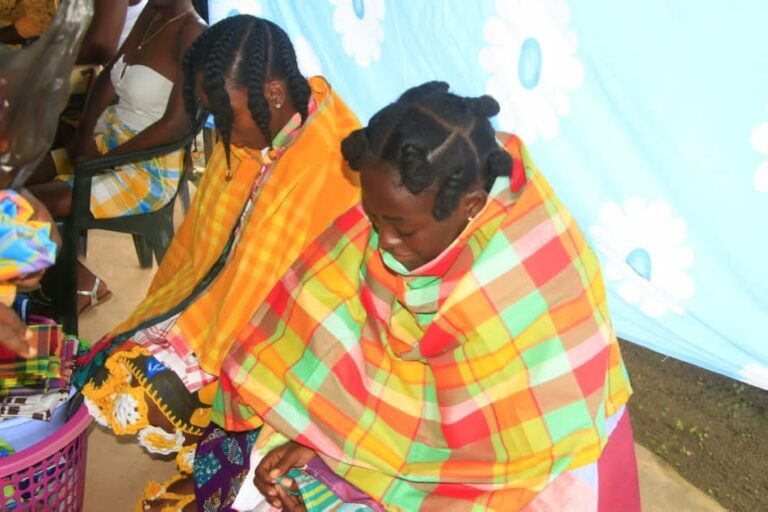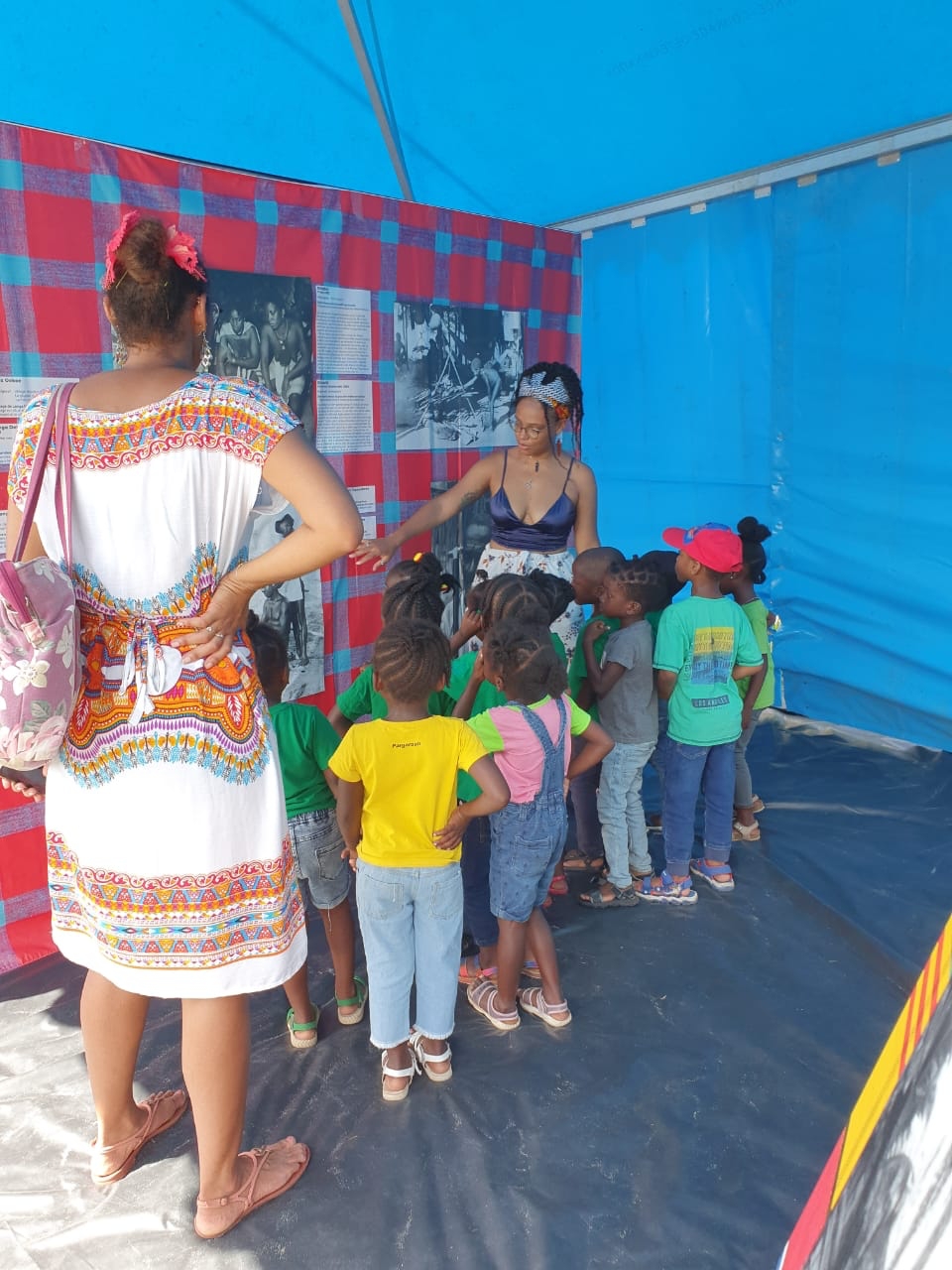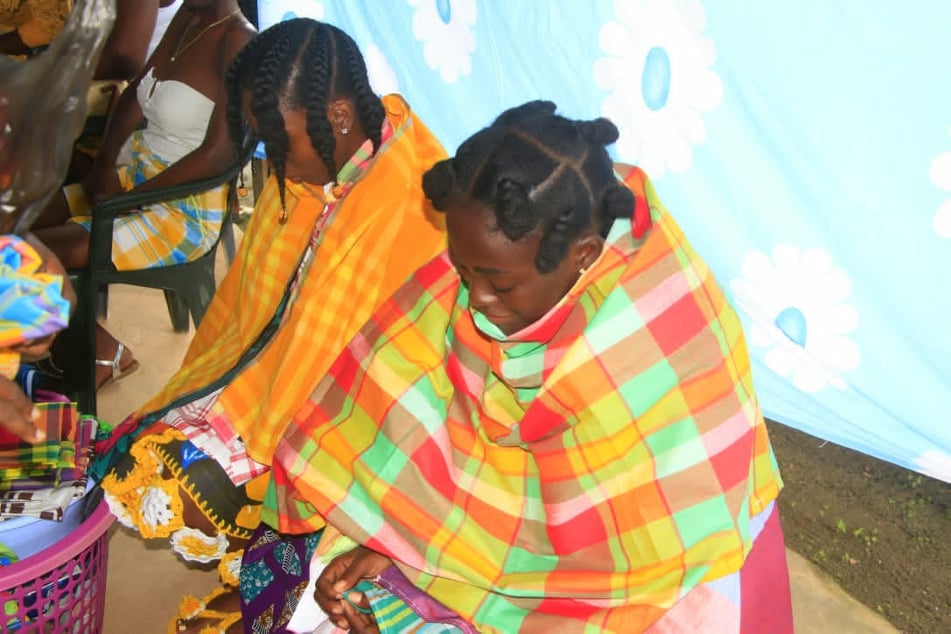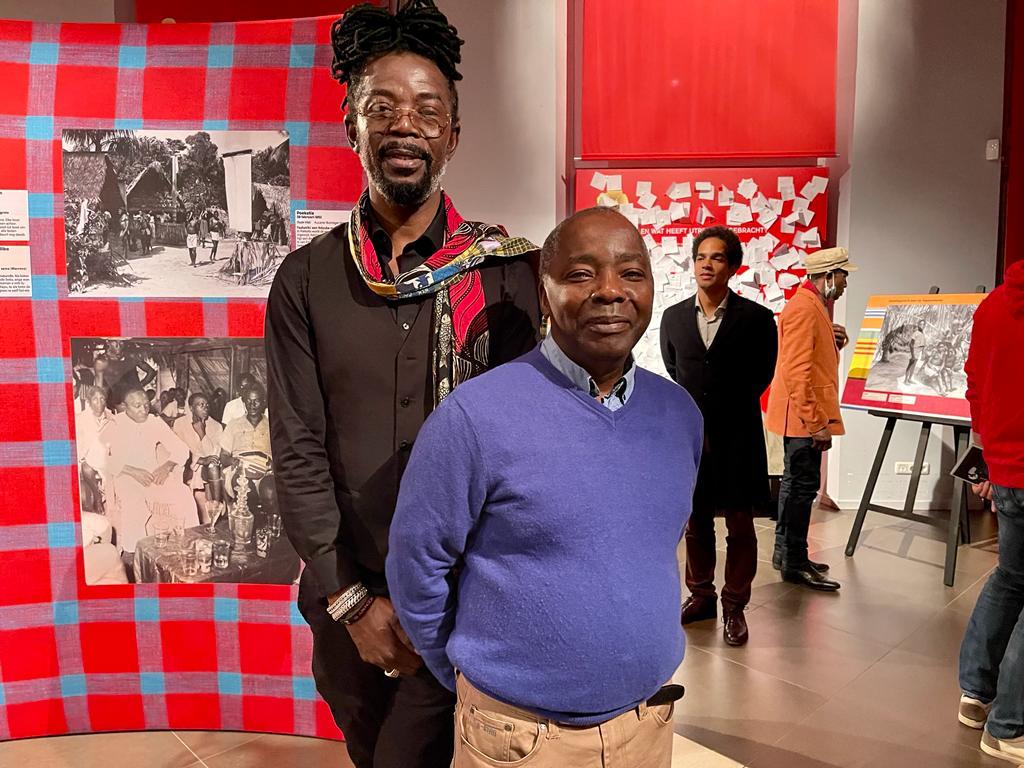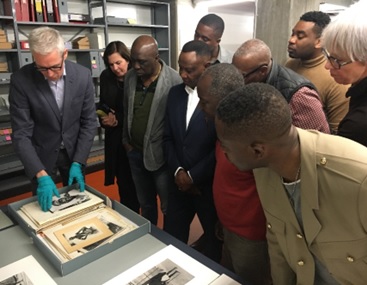In the Aukan community, the transition from girl to young woman is one that is celebrated at length. In honor of this transition the, from then on, young women receive their pangi. The pangi in itself is a traditional blong cloth that can be wrapped around the hips. But in the ritual of the gi pangi, it is so much more, as I too have had the opportunity to experience.
Raised in a small village in the north of the Netherlands, I had little to do with my Aukan roots in my youth, other than what I experienced at home and during an occasional trip to Suriname. Yes my parents spoke Ndyuka and taught us in every possible way about our special origin. But really realizing and feeling how special it was came much later.
This started when my grandmother turned out to be incurably ill and not much time was given to her. After my studies, I had already travelled to Suriname several times on my own to get to know my family there. But this time my father insisted that we make a trip to Suriname together. Logical I thought, perhaps this was the last opportunity for him to visit his mother again.
Once there, it became clear to me that my father did not want to let his mother go without her granddaughter having her pangi. The pangi that would be given to me by the paternal aunts, my grandmother’s daughters. The pangi that would make me a young woman in her and my father’s eyes.
As I remember it, I received my pangi without notice. That my parents, divorced since I was 18, did prepare this together was evident by the fact that a maternal aunt also briefly attended the ceremony. Compared to the lavish celebrations I see passing these days, my ceremony was subdued. At my aunt’s home, by my aunts in the presence of several nieces, I was wrapped and -laid several cloths and all beautiful wishes were addressed to me. I was told that from that day forward I was seen as a woman with all the rights and duties due a true woman. And with the wrapping of those cloths and receiving the beautiful wishes, I felt the shift. I was received as one of them, as one of the adult. Ready to arrange my life as I wished. Still under the watchful eye of the elders, of course.
At the hospital, my grandmother asked from her sick bed if everything had worked out. And it was good. Good for me, good for my father and good for my grandmother. Upon returning to The Netherlands, my grandmother passed away not much later. The pangi’s in my closet here in the Netherlands still remind me of her and of the special path we took as descendants of the Aukaners.
How do you remember your ceremony or that of your sister, niece or other woman I your life?
Other news:
- Translation of the LinkedIn post of the meeting of the support group
- Translation of the LinkedIn post of the Photo expo in the Utrechts Archive
